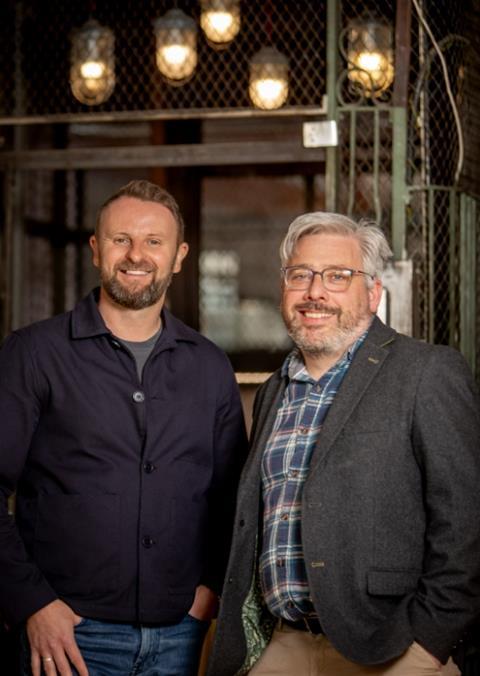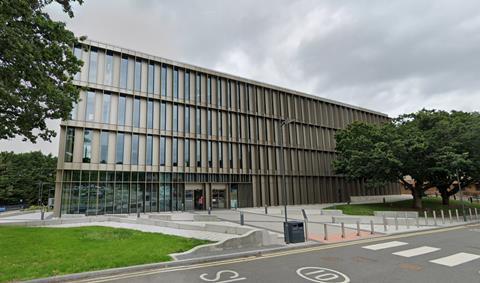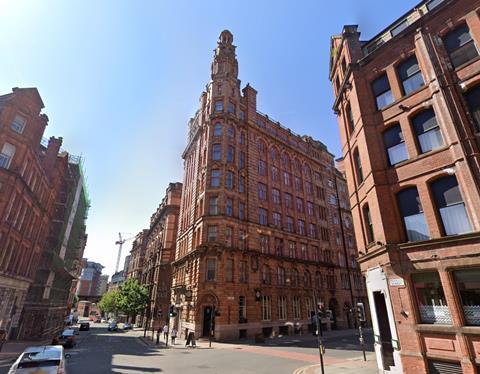Practice behind several of city’s most famous listed buildings went into administration this week after succumbing to mounting debts and project delays
Historic Manchester-based practice Fairhursts Design Group has been acquired by Bond Bryan after going into administration.

Bond Bryan bought the practice behind some of Manchester’s most famous listed buildings for an undisclosed sum this week.
The deal will see Bond Bryan, which currently has six studios, expand its presence into Manchester, Cambridge and Southampton, where Fairhursts’ three studios are located.
The acquisition creates a new group with a combined team of 180 professionals, including architects, technicians, interior designers, laboratory designers, landscape architects and strategists.
Fairhursts Design Group will be renamed as Fairhursts Architects and will remain as a separate entity to Bond Bryan, with the latter becoming the former’s parent company.
The pair have been working towards a potential merger for the past year but mounting debts and a series of project delays at Fairhursts are said to have “accelerated” the discussions.
Fairhursts appointed Craig Johns and Jason Elliott at Cowgills as administrators this week following 130 years of trading.
The firm’s managing director Mark Adey described the acquisition, which will save all 40 jobs at the troubled practice, as an “excellent outcome for the futures of both Fairhurst and Bond Bryan”.
“Like many in the sector, we have faced extremely difficult trading conditions of late, which ultimately meant that Fairhurst was not able to continue in its previous form,” he said.
”However, joining Bond Bryan will allow both firms to offer a broader range of enhanced services and help take both businesses to the next level.”
Bond Bryan chief executive Matt Hutton added: “We have known and worked with Fairhurst for some time, including through our existing joint venture in Cambridge.
“Our specialisms in education, advanced manufacturing and residential have a perfect complement in Fairhurst’s expertise in science and innovation, workplaces and higher education.
“Together, this partnership is stronger than the sum of its parts and I’m excited by the opportunities it will create for both firms.”
Fairhursts was founded in Blackburn in 1896 by HS Fairhurst. Its latest accounts, filed for the year to 31 October 2022 and signed off at the end of last July, showed the firm owed creditors more than £1.7m, including £390,000 to trade creditors, £416,000 to HMRC and £43,000 in bank loans.
At the time it was owed nearly £990,000 from trade debtors and had just £15,000 in the bank, although this had been a significant improvement from the year before when it had just £404 of cash at hand.
It is understood the finer details of the acquisition are still being thrashed out and it is not yet known if Bond Bryan will take on Fairhursts’ liabilities as part of the deal, which was a pre-pack administration.
Fairhursts blamed turmoil in government and financial markets for an “uncertain” start to 2023 in its accounts but said its growing workload with “previously quiet” clients and in the STEM sector gave it a “cautious level of confidence for the future”.
But it added that the cost of living crisis and the war in Ukraine had led to delays in some project starts and longer delays in schemes which had previously been deferred, meaning directors were having to keep a “tight control on staff levels to maintain profitability”.

The firm also restructured its board to reduce the number of directors in order to concentrate on core sectors after the financial year to 31 October 2023 returned flat year on year sales.

Fairhursts has increasingly focused on science and research work since its takeover of another long standing Manchester practice, Cruickshank and Seward Architects, in 2008.
Recent projects include the £55m Interdisciplinary Biomedical Research Building for the University of Warwick and the School of Digital Arts at Manchester Metropolitan University.
Ongoing projects include a £60m life sciences scheme in Cambridge, a science campus in North London and the £45m Heart and Lung Research Facility for the University of Cambridge.
Past major schemes include Dock 9 at Salford Quays for developer Peel, several buildings at Bruntwood’s Alderley Park in Cheshire and work at Manchester United’s Old Trafford stadium and the club’s Carrington training ground, which is now being refurbished by Foster & Partners.
Fairhursts’ historic buildings in Manchester include the grade II*-listed Lancaster House, completed in 1910, and the grade II-listed Rylands Building, an Art Deco former department store completed in 1932.















1 Readers' comment